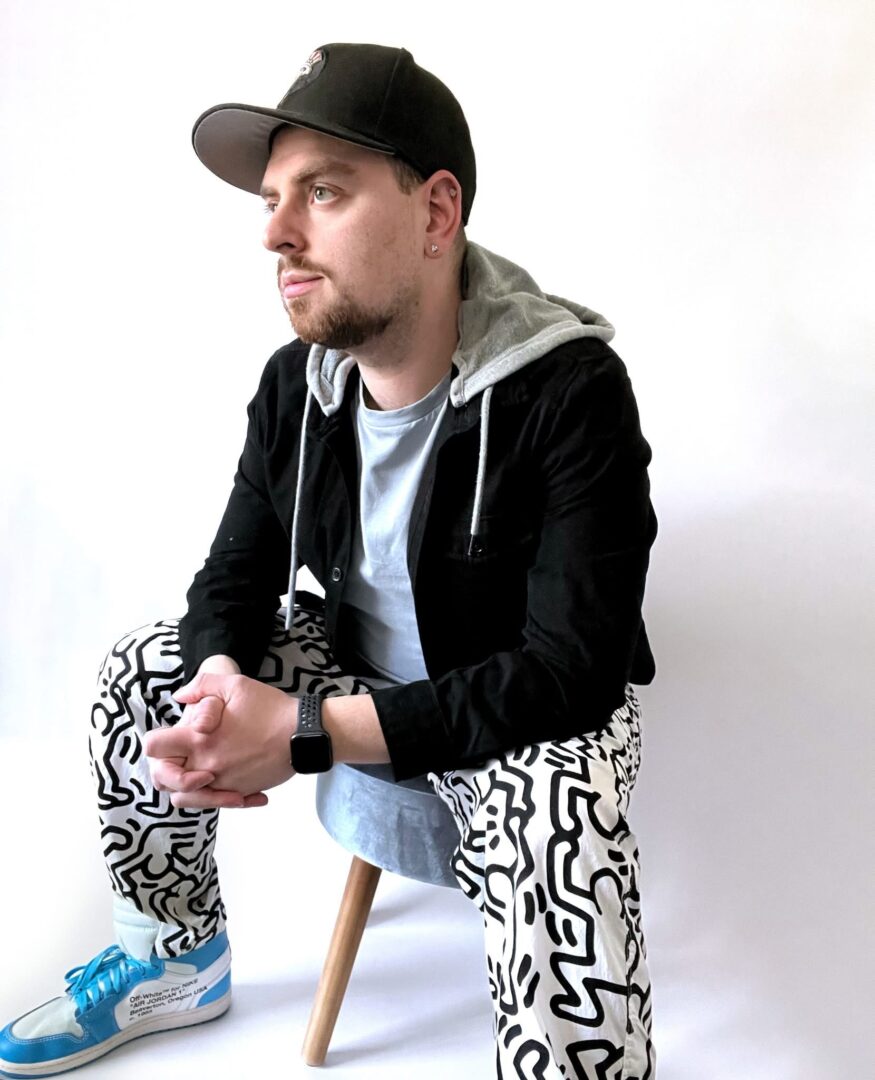We recently had the chance to connect with Scott Arbital and have shared our conversation below.
Good morning Scott, we’re so happy to have you here with us and we’d love to explore your story and how you think about life and legacy and so much more. So let’s start with a question we often ask: What do the first 90 minutes of your day look like?
Each morning starts with movement. Four to five days a week, I’m at the gym for about 45 minutes; on the other days, it’s a walk outside to get my body moving. While I’m exercising, I listen to the radio or a podcast that educates or inspires me—something that sparks new ideas before the workday begins.
When I’m back home, breakfast doubles as planning time. I’ll review my calendar, organize my priorities, and mentally map out what’s ahead. It’s my quiet “me” time, but it’s also when I’m priming myself to perform at my best.
These first 90 minutes are crucial. By moving my body, feeding my mind, and preparing for the day, I set myself up to be quick, focused, and productive—often getting more done than most people manage in a full day. This routine is one of the biggest reasons why the rest of my day runs so efficiently.
Can you briefly introduce yourself and share what makes you or your brand unique?
My name is Scott Arbital, and while I’m a graphic designer by education, my career has expanded far beyond that title. Over the past decade, I’ve worked in industries as varied as fashion, entertainment, medical, and pharmaceuticals — each one giving me a deeper understanding of how brands connect with people, how missions drive businesses, how to build working processes and how strategy shapes success. This multi-layered background lets me see brands, goals and communications from angles many specialists never encounter.
That perspective has fueled several ventures of my own. I’ve built businesses that help brands tell their story visually and strategically. I’ve created companies that provide high-impact creative solutions like video production and photography so organizations can communicate powerfully across every channel. And more recently, I founded a service focused on individuals — helping professionals land jobs faster through custom resumes, cover letters, and LinkedIn profiles paired with one-on-one strategies for navigating the job market. This business is called SMA Resume.
What makes this body of work unique isn’t just the breadth of industries or the proven results. It’s the way I approach every client and every project with personal attention and a tailored plan. Instead of offering generic templates or one-size-fits-all advice, I take the time to understand your goals, your story, and your challenges — then design a path to get you where you want to go.
For me, creativity isn’t just about visuals; it’s about solving problems, building relationships, and leaving a positive mark on people and brands. Whether I’m developing a new brand identity, designing a marketing strategy, or helping someone pivot their career, my goal is always the same: to use my experience, creativity, and strategy to unlock new possibilities and help others grow.
Amazing, so let’s take a moment to go back in time. Who saw you clearly before you could see yourself?
My late grandmother, Ida, always saw me — and my potential — long before I did. From the time I was a kid with oversized dreams to the adult trying to carve out my own path, she never once doubted what I could become. No matter how outrageous or far-fetched my ideas sounded, Ida encouraged me with an enthusiasm that made me believe they were possible. She wasn’t just a cheerleader on the sidelines; she was an active partner in my growth, offering late-night talks full of wisdom, quiet gestures of support, and small actions that nudged me toward the results I was chasing.
When life felt heavy or confusing, Ida’s house was my refuge. I would run there when I was sad, knowing she’d listen without judgment. And when something went right, she was the very first person I wanted to share it with — before anyone else. Her joy in my accomplishments made even the smallest wins feel significant.
Even now, when I’m feeling low or doubting myself, I still go back to her voice. I listen to the voicemails she left me and can almost hear her sitting across the couch, telling me things that enlightened me about the world and about myself. It grounds me and reminds me who I am.
A smile comes to my face when I think of Ida and all she did for me. She saw me as successful before I ever felt that way, and her belief became a kind of compass. Her faith in me — steady, warm, and unwavering — continues to guide the way I move through the world and fuels the work I do today.
Was there ever a time you almost gave up?
I think every entrepreneur reaches moments where they want to give up — and usually more than once. Venturing out on your own isn’t a straight path; it’s full of stages, and one of the hardest is what I call the “lonely stage.” This is when you’ve tried and tried, hit hurdle after hurdle, and start to feel like nobody — not even your friends or loved ones — truly understands your mindset or your vision.
During that stage, boundaries have to be set and hard choices have to be made. You’re forced to think through every next move so that it leads you closer to success, and that process can feel isolating and defeating. But in my experience, that’s also a sign you’re on the cusp of something great.
Every successful person I’ve admired has gone through that same period — where they had to change their circle, change direction, or make difficult decisions to keep going. I’ve been there myself. We all want to give up at that point, including me, but that’s exactly when you shouldn’t. That’s the point where persistence, focus, and faith in your vision separate a good idea from a breakthrough.
Sure, so let’s go deeper into your values and how you think. What important truth do very few people agree with you on?
An important truth I believe in — and that not everyone agrees with — is the importance of not just prioritizing mental health, but actively getting it treated. You don’t have to go through a traumatic event or feel like something is “wrong” to go to therapy. In the same way we schedule regular checkups with a dentist or a physician, I believe everyone should be seeing a mental health professional.
I used to be on the other side of this thinking. I thought talking to someone weekly was only necessary if something truly bad had happened. But that was a narrow view. The reality is we all carry some form of trauma, and we all have areas where we can grow. Therapy isn’t about being “broken”; it’s about investing in your growth, both personally and professionally.
I’m a strong believer in the idea that “we should always be a student,” and that applies just as much to learning about ourselves as it does to learning new skills. Letting a trained professional help guide you through that journey can unlock a level of self-awareness and resilience you might not find on your own. To me, that’s a truth worth championing, even if not everyone sees it yet.
Okay, so before we go, let’s tackle one more area. Could you give everything your best, even if no one ever praised you for it?
Your best can’t be a competition with others. If you’re constantly measuring yourself against outside praise, you’ll always be chasing someone else’s approval instead of building your own excellence. As human beings and professionals, we have to keep growing and learning regardless of applause. “Always be a student,” which means the first and most important praise needs to come from within.
My mentality is simple: wake up every day in competition with yourself, not anyone else. The only person you need to prove something to is you. If you know you’re trying hard, learning, and winning your own small battles, then you’re giving your best — even if no one notices.
Not every day comes with people on the sidelines cheering. In fact, some of the people you’d expect to be in your corner aren’t always there. While I’m fortunate to have some true supporters, I also have a lot more “watchers” than “praisers.” And that’s okay. It’s always me versus me. That mindset — being my own biggest motivator and holding myself to the highest standard — is what makes me the hardest worker in the room and ensures I give my best no matter who’s watching.
Contact Info:
- Website: https://smaresume.com
- Instagram: https://www.instagram.com/sma_resume/
- Linkedin: https://www.linkedin.com/company/sma-resume/
- Facebook: https://www.facebook.com/profile.php?id=61573393584042






so if you or someone you know deserves recognition please let us know here.




